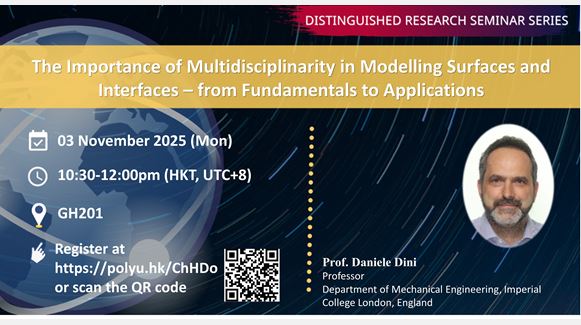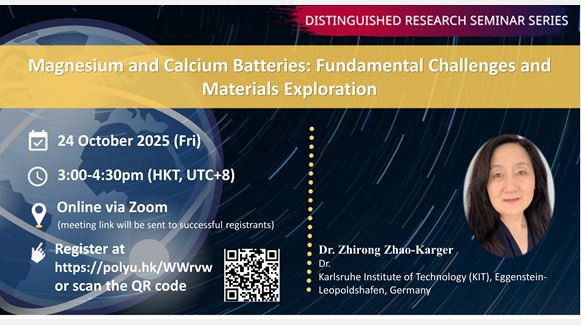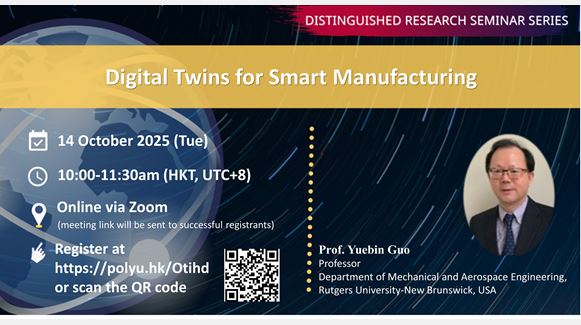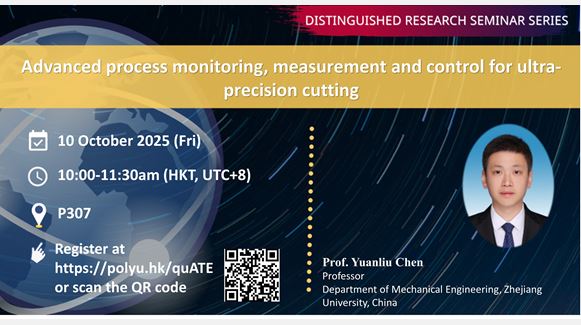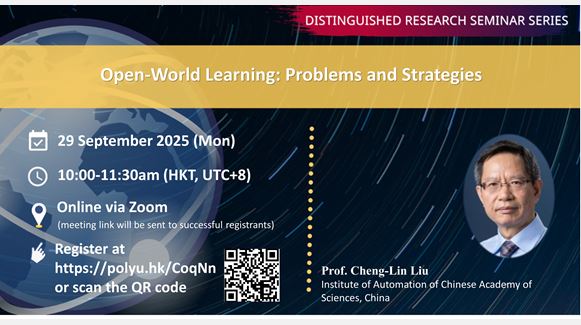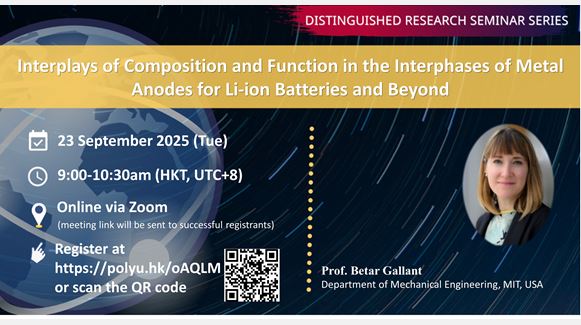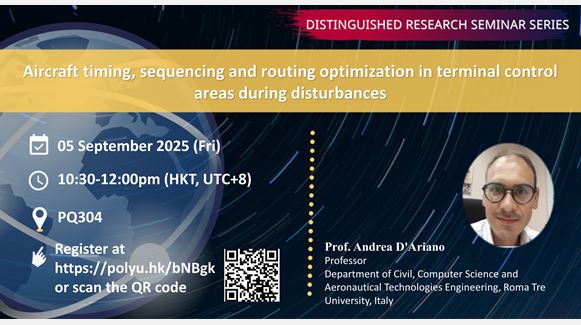Digital Twin: A Magic Mirror?
Distinguished Research Seminar Series
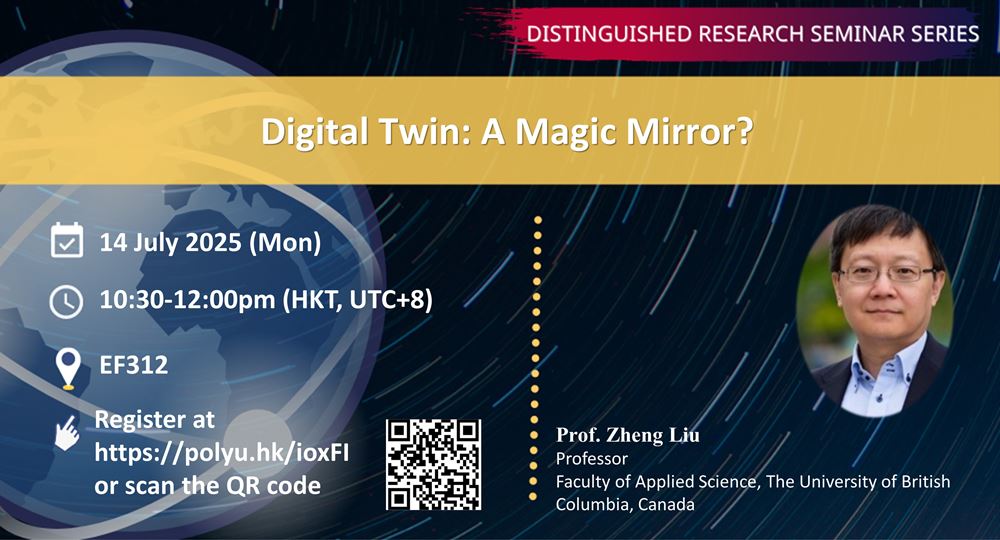
-
Date
14 Jul 2025
-
Organiser
Department of Industrial and Systems Engineering, PolyU
-
Time
10:30 - 12:00
-
Venue
EF312
Speaker
Dr. Zheng Liu
Summary
Industrial digital transformation is enabled by new information and communication technology (ICT) and data-intensive methodologies. Among these emerging technologies, digital twinning represents a particularly disruptive innovation that creates living models of industrial assets. Digital twins are dynamic virtual representations that continually adapt to changes in the environment or operations using real-time sensory data. This capability enables them to forecast the future state of physical assets and proactively identify potential issues before they occur. By leveraging a combination of physics-based models and data-driven analytics, digital twins can predict the remaining useful life of their physical counterparts, enabling predictive maintenance strategies.
The digital twin ecosystem integrates multiple advanced technologies, including sensor and measurement systems, industrial Internet of Things (IoT), simulation and modeling tools, machine learning algorithms, artificial intelligence, and data/information fusion techniques. These components work together to create comprehensive virtual representations of physical systems. Despite its growing prominence, the digital twin concept has varied definitions across different applications and industries. Digital twins are often described as "mirrors" that reflect the properties, behaviors, and performance of the real-world entity. However, this metaphor requires clarification to understand the full scope and capabilities of digital twin technology. This presentation will begin by establishing a clear conceptual framework for digital twins and then describe their creation and implementation across different applications. The discussion will include both industry platform examples and case studies to illustrate practical implementations and outcomes.
Keynote Speaker

Dr. Zheng Liu
Professor
Faculty of Applied Science, The University of British Columbia, Canada
Dr. Zheng Liu is a full professor in the Faculty of Applied Science at the University of British Columbia (Okanagan Campus). He holds dual doctoral degrees: a Doctorate in Engineering (measurement and evaluation) from Kyoto University, Japan (2000), and a Ph.D. in Electrical Engineering from the University of Ottawa, Canada (2007). Dr. Liu's career spans multiple institutions across three countries. Following his first doctorate, he served as a Research Fellow at Nanyang Technological University, Singapore (2000-2001). He then joined the National Research Council of Canada (NRC) in Ottawa as a Governmental Laboratory Visiting Fellow, nominated by NSERC in 2001. From 2002 onwards, he worked as a Research Officer with NRC's Aerospace and Construction research institutes. Between 2012 and 2015, Dr. Liu held a Full Professor position at Toyota Technological Institute in Nagoya, Japan, before joining UBC. His research focuses on advanced engineering applications, including predictive maintenance, data and information fusion, computer and machine vision, machine learning, smart sensors, industrial Internet of Things (IoT), and non-destructive inspection and evaluation. Dr. Liu is recognized as a Fellow of the Engineering Institute of Canada (EIC) and the SPIE, and maintains Professional Engineer licenses in both British Columbia and Ontario. Dr. Liu has authored four books and published over 370 peer-reviewed articles in leading journals and conferences. He actively contributes to the academic community through editorial service in several prestigious journals, including IEEE Transactions on Mechatronics, Emerging Topics in Computational Intelligence, Instrumentation and Measurement, AgriFood Electronics, and Information Fusion, Machine Vision and Applications, and IET/CAAI Transactions on Intelligence Technology.
You may also like

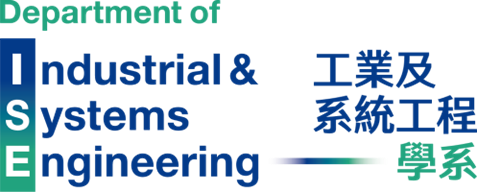
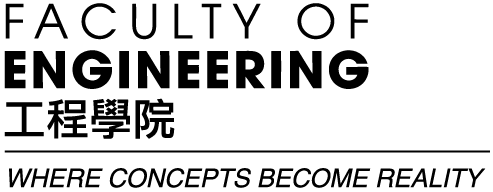

.jpg?as=1&sc=1&rev=4f401634aad544999d4ddfc275685b7f&hash=6A25FB935F156B315DE6DFC84E532317)



